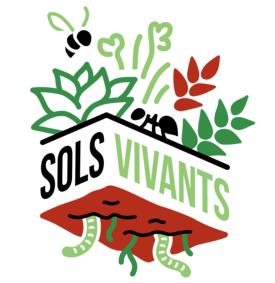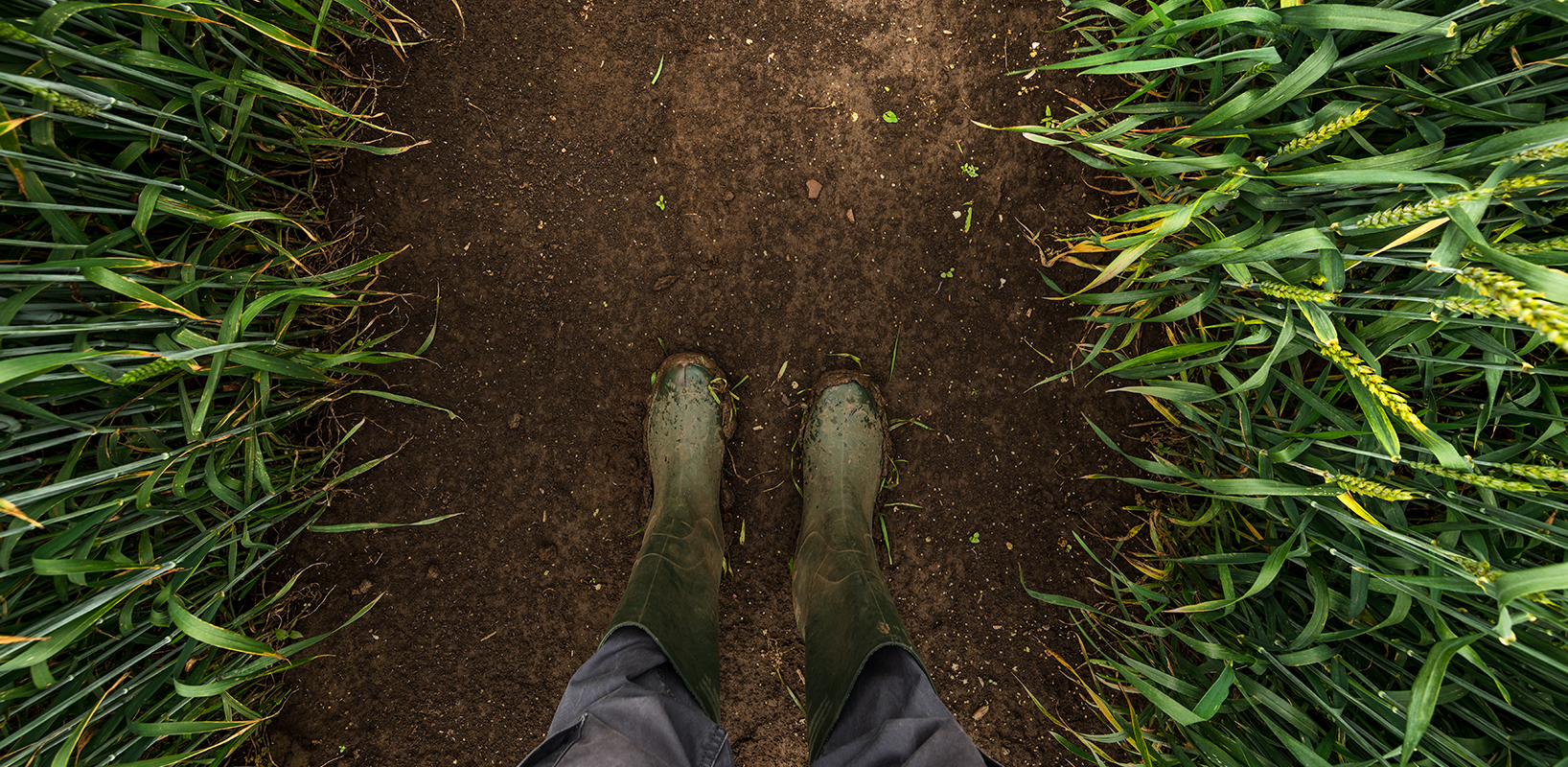
Le programme Sols Vivants
Nos écosystèmes productifs doivent être repensés. Au cœur de cet écosystème, ce que nous avons en commun de plus précieux : la terre. La régénérer doit être un des piliers centraux de la transition agricole et alimentaire et cela commence par le retour à des sols en bonne santé.
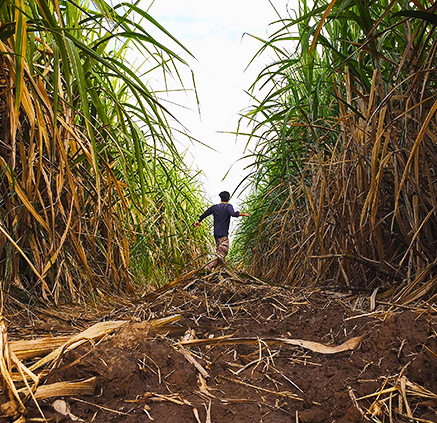

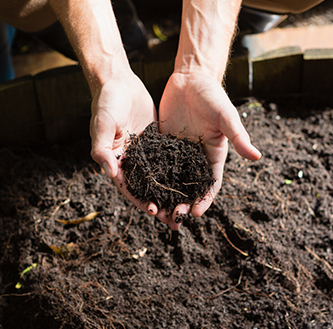
Pourquoi les sols vivants sont le pilier fondamental de l'agriculture régénérative ?
Le sol agricole représente un peu plus de 7% de la surface de la terre et est utilisé pour nourrir notre population mondiale. Prendre soin du sol est essentiel pour assurer la résilience de l’agriculture et la durabilité de notre alimentation. Partout dans le monde, des femmes et des hommes transforment leurs pratiques agricoles, tentant de travailler avec la Nature et non contre elle. Ils réconcilient productivité et écologie : ils s’essayent à réduire le labour, à couvrir de manière permanente les sols par des végétaux amenant naturellement humus et fertilisation organique, à composer des cultures multi espèces se rendant mutuellement des services écologiques.
Ces pratiques sont puissantes car elles permettent de préserver la biodiversité dans le sol, de mieux filtrer l’eau, de capter plus de carbone, de susciter l’activité du microbiome de la terre, tout en produisant en abondance. Saviez-vous qu’un sol peut contenir jusqu’à 2 tonnes de vers de terre par hectare, véritables laboureurs naturels ? Qu’il joue un véritable rôle d’éponge qui retient l’eau, fonction fort utile en période de sécheresse ou de fortes pluies ?
Ainsi les experts s’accordent pour dire que les sols riches en humus et biodiversité, sont parmi les solutions les plus prometteuses pour combattre l’urgence climatique, tout en maintenant productivité et qualité des productions.

Découvrir l'agriculture régénérative en BD
Les bénéfices d’un sol vivant
Des productions qualitatives
Des services rendus à l'environnement (biodiversité, rétention en eau, stockage du carbone)
Une productivité maintenue
Des agriculteurs mieux reconnus pour leur démarche vertueuse
Que proposons-nous concrètement avec Sols Vivants ?
Notre mission est de contribuer à développer l’adoption de pratiques agricoles, commerciales et d’investissement qui permettent d’aller vers des « sols vivants », et plus largement vers l’agriculture régénérative. Ensemble, avec les agriculteurs investis, nous accélérons l’adoption de pratiques plus vertueuses et de modèles économiques qui les soutiennent, pour offrir demain aux consommateurs-citoyens des productions agricoles locales, plus saines et réellement résilientes pour les agriculteurs et l’environnement.
La réussite d’une telle entreprise repose sur une approche collaborative inédite de tous ceux qui font la chaine de valeur du champ à la fourchette : l’agriculteur, l’entreprise agroindustrielle, le distributeur en passant par le scientifique, le décideur public, l’actionnaire et l’agronome… Sols Vivants rassemble ces acteurs dans les territoires qu’ils habitent et/ou dans lesquels ils opèrent, pour se pencher de manière pragmatique et réaliste sur le sujet des sols.
Nous créons ainsi des outils et solutions pour accompagner les agriculteurs, mesurer la transition et inciter financièrement celle-ci.
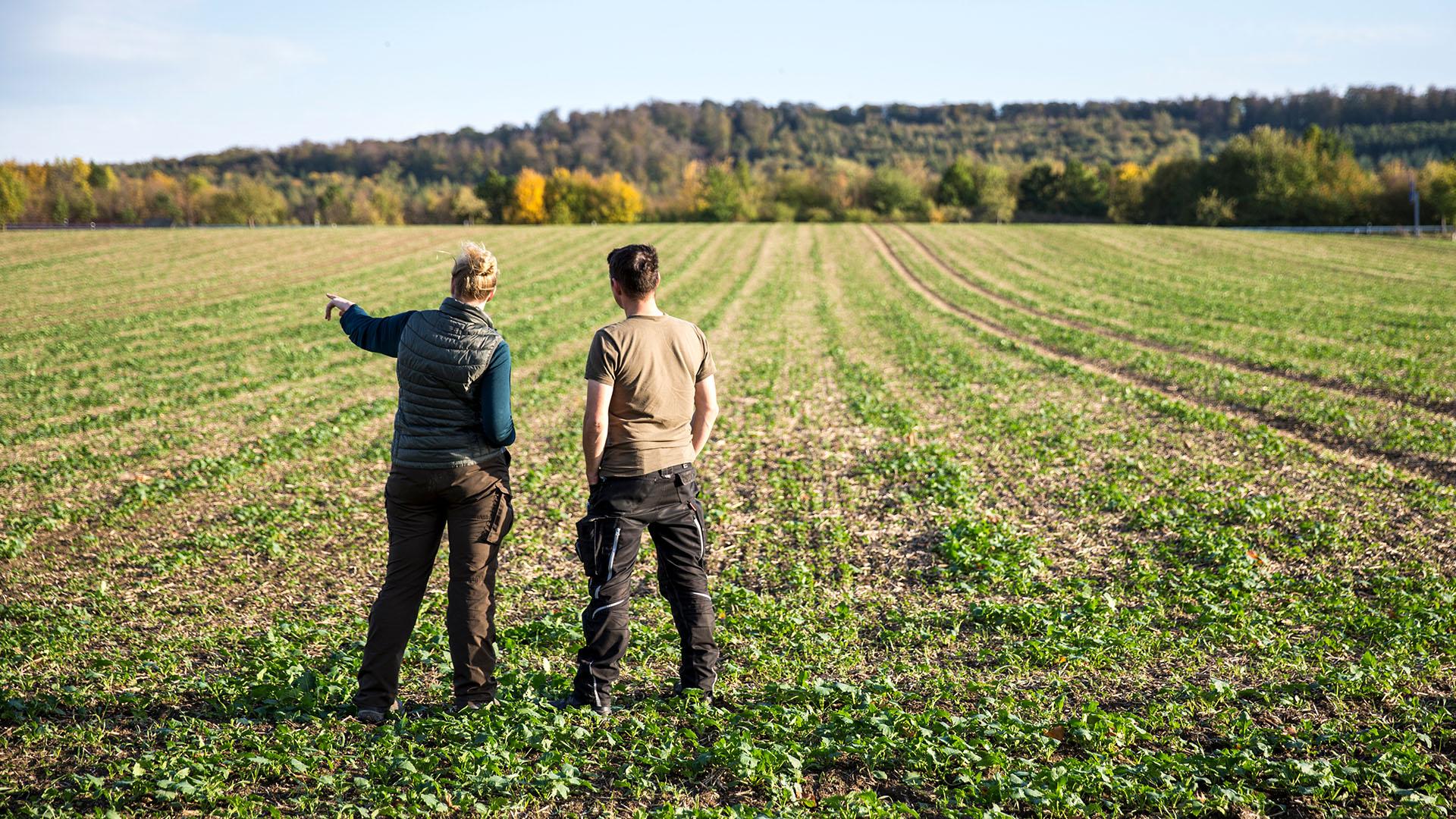
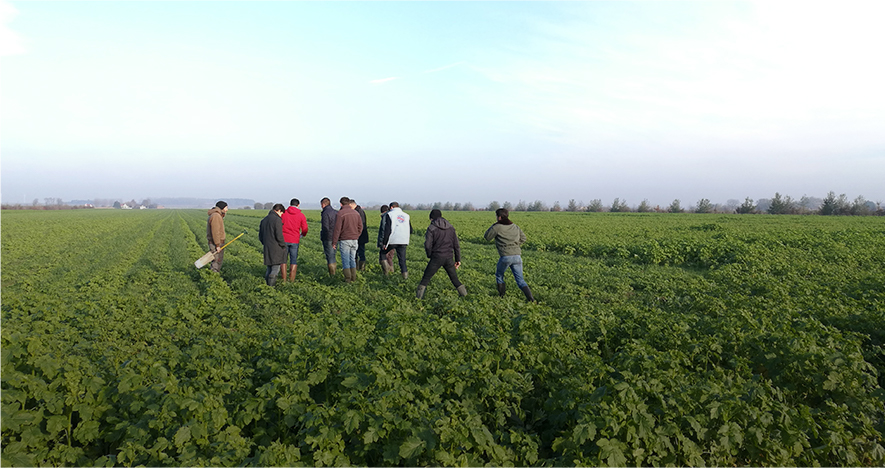
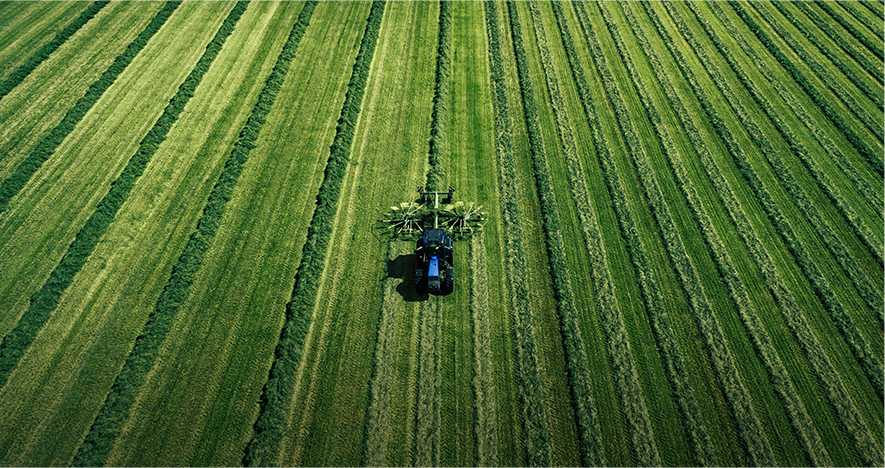
L'organisation
Sols vivants est une initiative d'Earthworm Foundation.
La raison d’être d’Earthworm, fondation internationale à but non lucratif, est de permettre la transformation des chaines de valeur dans l’objectif d’assurer leur durabilité environnementale et sociale. Ce sont les produits que nous consommons au quotidien qui ont le plus d’impact sur notre planète. En changeant la manière dont ils sont produits, pour la rendre plus vertueuse, on peut changer le monde !
Nous agissons tel un catalyseur qui crée des liens entre acteurs de mondes différents et rend possible la cocréation de solutions pragmatiques.
Travaillant historiquement sur la régénération et préservation des forêts depuis 1999, nous avons élargi notre action à la régénération des sols en 2018.

La gouvernance
Dans une approche collaborative, à l’échelle d’une filière ou d’un territoire, le programme Sols Vivants vise à accélérer la régénération des sols. Agriculteurs, scientifiques, entreprises et acteurs des territoires agissent concrètement pour régénérer la fertilité des sols !
Le comité des partenaires permet à l’ensemble des acteurs, scientifiques, agriculteurs, entreprises, techniciens, formateurs, communicants impliqués dans le programme de célébrer les réussites et de proposer les axes de progrès.
Des groupes de travail composés de femmes et d’hommes qui ont à cœur de faire avancer l’action se rassemblent 3 à 4 fois par an autour des thématiques telles l’accompagnement des agriculteurs, le financement de la transition, l’innovation dans les filières, la communication. Leur rôle est de composer concrètement les feuilles de route, les plans d’actions pour que l’agriculture régénérative se concrétise sur le terrain.
Ce groupe de travail vise à mettre en relation les acteurs financiers et institutionnels avec les autres acteurs de la transition, afin de co-créer des solutions à l’échelle du territoire et de la chaîne de valeur autour de la rémunération des services écosystémiques, la valorisation par le marché des produits agricoles provenant de l’agriculture régénérative, la mitigation des risques liés la transition (perte de rendement, etc.) pour l’agriculteur, l’investissement lié à la transition : ressources humaines à l’échelle des coopératives, technologie, intrants (coops et agriculteurs), outillage (agriculteurs).
La communication est importante pour permettre aux acteurs du programme Sols Vivants de communiquer sur les avancées. Nous souhaitons créer un espace de travail pour aider les entreprises et les marques à communiquer concrètement autour des sols vivants et de l’agriculture régénérative.
Un des points majeurs de la transition est l’accompagnement technique des agriculteurs sur le terrain dans cette transition vers de nouvelles pratiques. Ces discussions seront structurées au sein d’un espace d’échange permettant de coordonner les efforts de formation et d’accompagnement des agriculteurs et des filières à l’échelle du territoire. Et ce afin de favoriser la montée en compétences sur l’agriculture régénérative, créer des dynamiques territoriales en connectant les acteurs, favoriser la formation de groupes d’agriculteurs pour l’innovation et le changement de pratiques.

L’équipe au quotidien
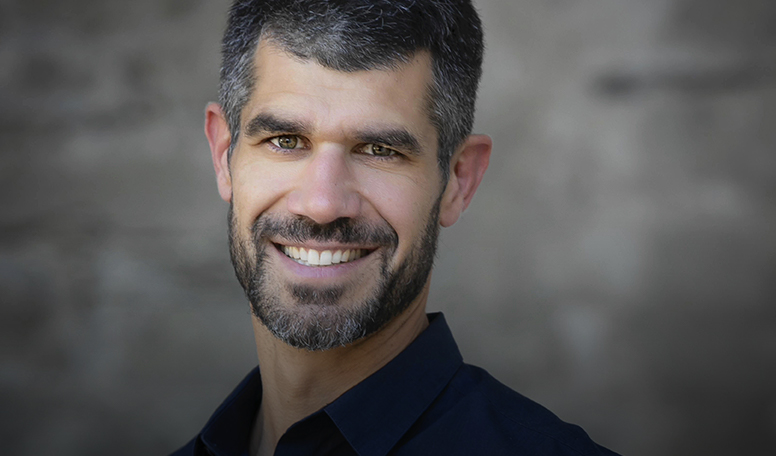
”La Terre c’est une fascination depuis que je suis enfant. J’ai compris tout le potentiel de la vie du sol plus tard, lorsque je conseillais des agriculteurs en Angleterre et en Argentine sur leurs pratiques de fertilisation. J’ai réalisé qu’ils pouvaient produire plus avec moins d’intrants s’il permettaient à leurs champs de se remettre en harmonie avec les grands principes naturels qui rendent les écosystèmes productifs et résilients, riches dans tous les sens du terme. Aujourd’hui je crois qu’il est possible de déclencher des transformations profondes de notre manière d’interagir avec le vivant en travaillant et faisant travailler les acteurs de la chaîne de valeur main dans la main plutôt qu’en opposition. Je crois en une écologie de solutions, pas en l’écologie punitive”.

« Après de nombreuses années passées à l’étranger pour travailler à l’intégration de projets industriels dans des territoires ruraux, je suis heureuse et fière d’avoir rejoint le Programme Sols Vivants pour accompagner, en France et dans un effort collectif, une transition vers des pratiques agricoles plus régénératives. C’est un sujet complexe, les enjeux sont importants pour tous les acteurs des filières agricoles, et notamment pour les agriculteurs, les défis sont nombreux… c’est bien pour cela qu’il faut allier les idées et les forces en présence, et utiliser le pouvoir du collectif. Pas toujours naturel et intuitif, mais tellement enrichissant! »
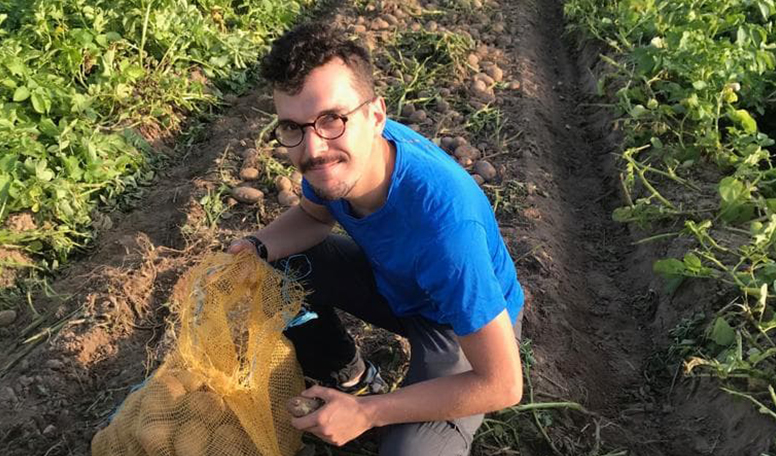
« Ingénieur généraliste de formation, je suis passionné par les questions de transition agroécologique depuis toujours. Ce qui m’a amené à sauter le pas et suivre une formation en agronomie et rejoindre le programme Sols Vivants en avril 2019. Ce que j’aime le plus sur le programme : Créer du lien entre les acteurs des chaînes de valeur, des agriculteurs aux industriels, et sensibiliser à la question des sols vivants tout type d’acteur. »

« Originaire du Chili, je suis arrivée en France pour finaliser une formation d’ingénieure agronome en environnement. Je me suis de nouveau tournée vers l’agriculture et l’agroécologie, déjà sur un plan personnel car mon mari est polyculteur éleveur et sur le plan professionnel en rejoignant Earthworm. Sur Sols Vivants, je suis en charge d’un de nos partenariats. Je travaille main dans la main avec ce partenaire pour que la transition se concrétise dans ses chaînes de valeur. »
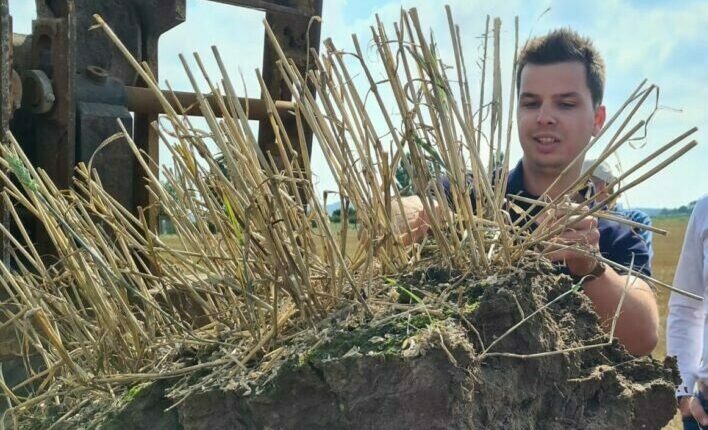
« Ingénieur agronome de formation, je m’épanouis sur le Programme Sols Vivants car je suis à l’interface avec les scientifiques, les agriculteurs et les entreprises. C’est un défi d’allier rigueur scientifique et pragmatisme pour la définition d’un sol vivant par exemple, et ce challenge est d’autant plus motivant que les outils créés par Sols Vivants seront mis à disposition des agriculteurs pour les accompagner dans leur transition. »
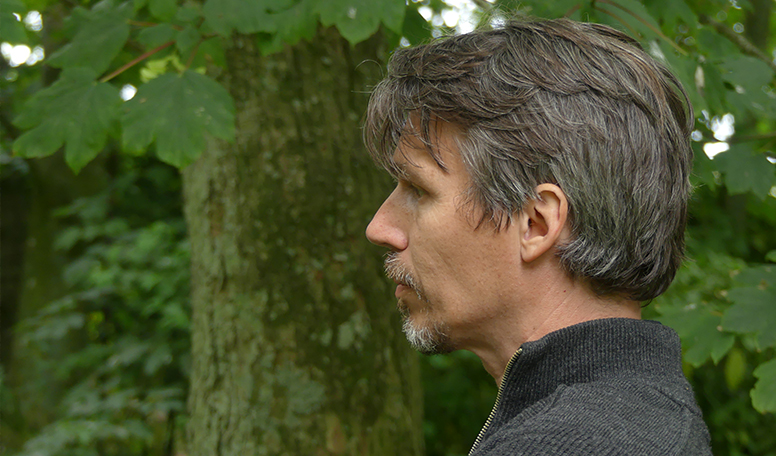
« Biologiste de formation ainsi que titulaire d’un diplôme dans la gestion des entreprises, remettre le vivant au cœur des chaines de valeurs est pour moi l’unique modèle qui permettra à notre société de survivre et prospérer. Le projet Sols Vivants rejoint aussi une de mes autres passions, à savoir recréer de la valeur dans nos territoires et travailler sur des chaînes d’approvisionnements courtes »

« Je me suis très vite intéressé par le vivant et l’agriculture, j’ai poursuivit dans cette voie à l’ISA Lille pour devenir ingénieur agronome. Au cours de mes expériences, j’ai eu l’opportunité d’animer des groupes d’agriculteurs en Normandie sur des thématiques d’agriculture de conservation. Avec le programme Sols Vivants, je suis à l’interface entre les agriculteurs, des partenaires agro-industriels et des partenaires techniques, c’est extrêmement riche ! »
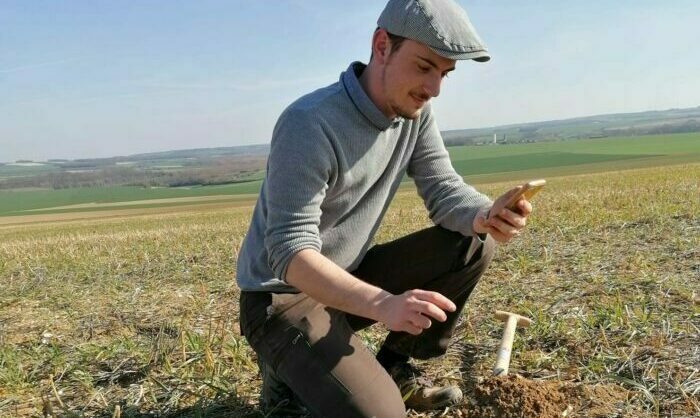
« Je trouve beaucoup de sens dans le programme Sols Vivants et ses objectifs. Je suis persuadé que la transition vers une agriculture plus durable doit être accompagnée et mesurée. Dans mon quotidien j’ai la chance d’échanger avec les agriculteurs et de réaliser à leurs côtés la première étape: observer le sol pour ensuite pouvoir avancer dans une transition. »
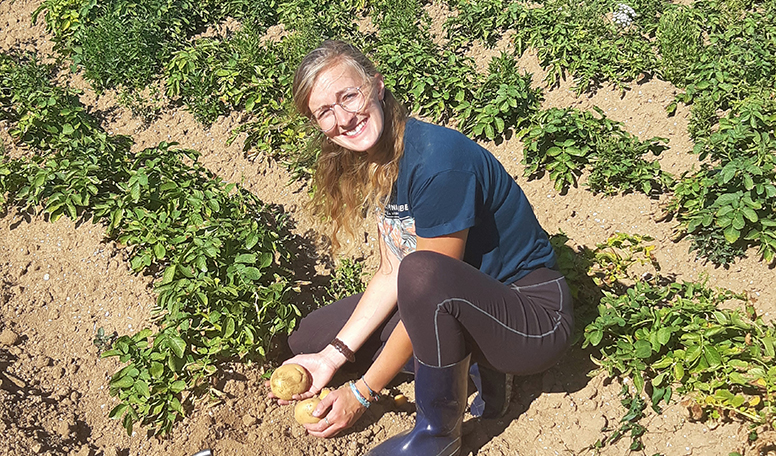
« L’agriculture et la transition vers l’agroécologie peuvent apporter des solutions aux enjeux de sécurité alimentaire, de lutte contre le changement climatique et de préservation de l’environnement. Le programme Sols Vivants porte une vision de l’agriculture à la fois plus durable, résiliente et qui valorise le travail des agriculteurs, je suis heureuse de m’y investir. »
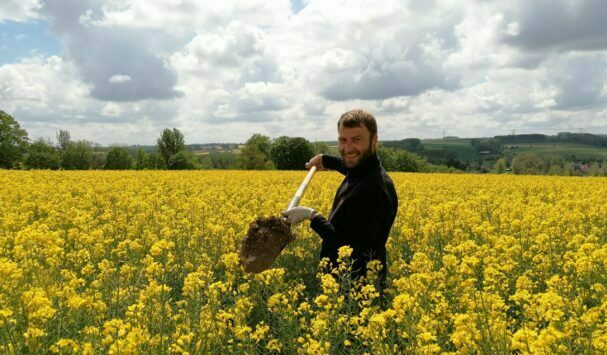
« Je viens du monde agricole et le connais très bien car j’aide dans l’exploitation familiale très régulièrement. Mon rôle dans le programme Sols Vivants est de coordonner les campagnes terrain. Sur quelques mois de l’année, une équipe de techniciens formés doit visiter des centaines d’agriculteurs pour faire des enquêtes et prélèvements. Mon rôle est de mettre cette vaste campagne en musique et l’enjeu est grand : toutes les mesures du programme reposent sur la campagne. »
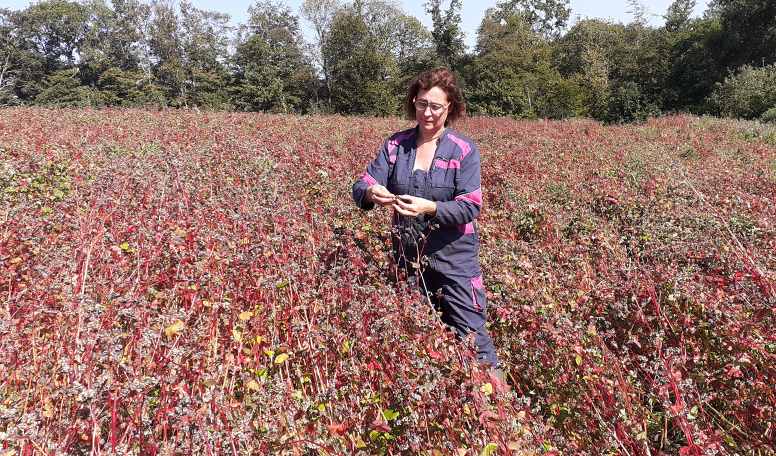
« Issue du monde agricole, ingénieur en agriculture, je vois au travers de Sols Vivants et du déploiement de l’agriculture régénérative, un vecteur fort de résilience de l’agriculture vers plus de durabilité agronomique, environnementale et économique. »
